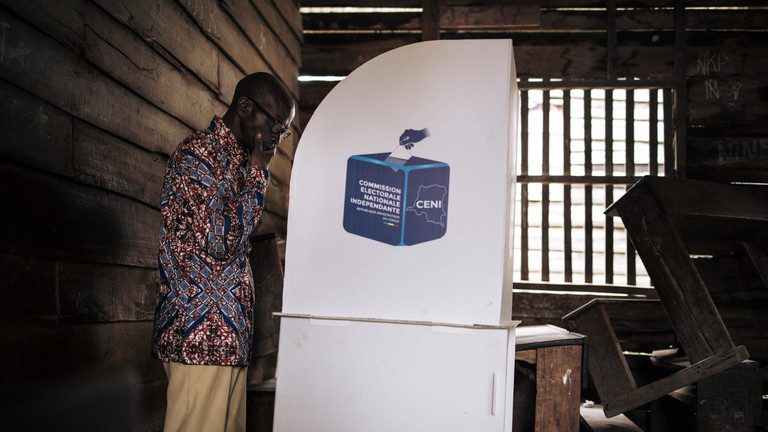Africa
Voting process in the conflict-stricken DR Congo has officially ended

The presidential and parliamentary elections in the Democratic Republic of Congo concluded with an unexpected second day of voting, amidst allegations of irregularities. The nation has long been plagued by conflict with rebel groups in its eastern region.
On Wednesday, polling stations opened in this mineral-rich Central African country for a single day of voting. However, due to logistical issues, the authorities had to extend the voting period for an additional day.
The first day of voting encountered challenges such as delays in delivering election materials and malfunctioning equipment. Local media reported instances where voters struggled to find their names on the registers, while violent incidents disrupted voting in certain areas. The unplanned extension of the voting period may lead to legal disputes over the results, as claimed by some opposition candidates and observers.
Out of the 18 opposition candidates running against President Felix Tshisekedi, five have called for a rerun of the election. However, Moise Katumbi, a prominent businessman and former provincial governor who is considered the main rival to the incumbent, has not joined their demands.
Approximately 44 million people are registered to vote in this African nation. Despite being the world’s third-largest copper producer, the Democratic Republic of Congo is ranked among the five poorest countries globally, according to the World Bank. Additionally, it is the leading global producer of cobalt, a crucial component in batteries used in various consumer electronics, including mobile phones and electric vehicles.
Denis Kadima, the president of the Independent National Electoral Commission (CENI), assured reporters that around 70% of voters were able to cast their ballots on Wednesday, and the extension would not impact the credibility of the vote. CENI plans to release preliminary results starting from Friday.
Election disputes in the African country have often led to violent unrest, reflecting its long history of conflict, political upheaval, and instability. This upcoming vote has the potential to mark the country’s second peaceful transfer of power. The first peaceful transition occurred in 2019, when Tshisekedi, the winner of the December 2018 presidential election, was inaugurated as the new leader. Tshisekedi succeeded Joseph Kabila, who had been in power for 18 years.
At the age of 60, Tshisekedi is seeking a second five-year term to strengthen his achievements. He has accused Rwanda, a neighboring country, of providing financial support to the M23 rebel group, among other militant coalitions that he believes are responsible for destabilizing the nation.
During his final campaign before the election on Wednesday, Tshisekedi expressed his frustration with invasions and the M23 rebels, which he claims are backed by Kigali.
“If you re-elect me and Rwanda continues its actions… I will seek parliamentary and congressional approval for a declaration of war. We will march on Kigali. Inform Kagame that the days of manipulating Congolese leaders are over,” he stated on Tuesday.
UN experts have also alleged that Kigali is arming the M23 militants, whose resurgence in 2021 has escalated violence in the volatile eastern region of DR Congo. The Rwandan government has consistently denied these accusations.
The UN peacekeeping mission in DR Congo, which has been in operation since 2010, is scheduled to conclude next year after the government requested its withdrawal due to perceived failures by the troops in addressing insecurity, particularly in the troubled North Kivu province.
